Which direction is best for sleeping according to Vastu Shastra?
Vastu Shastra [1] is an age-old architectural philosophy from India that focuses on the design and layout of space as a way to balance and harmonise energies. 🧘♂️
Vastu principles suggest the ideal direction for sleeping is with your head toward the south and your feet towards the north.
This alignment harnesses the Earth’s electromagnetic field, enhancing sleep quality by possibly lowering blood pressure for a more restful night.
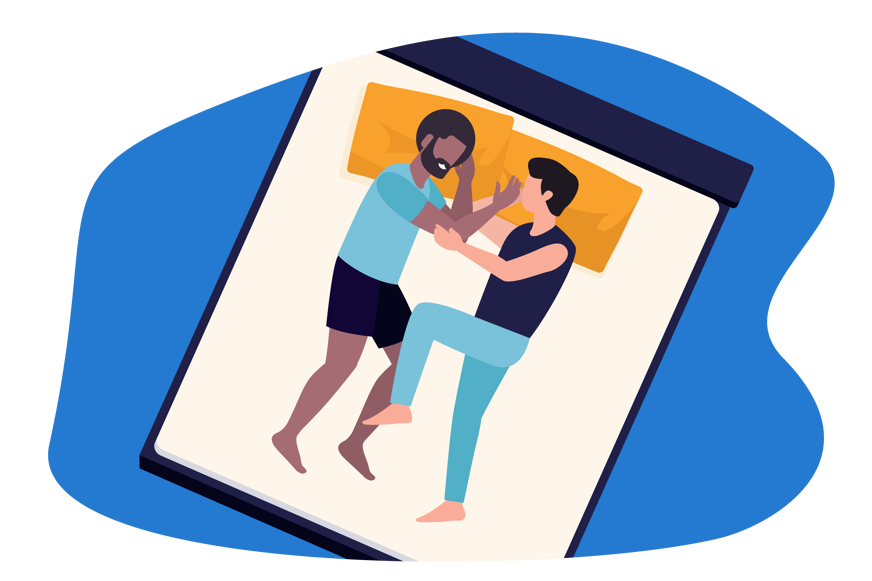
Vastu experts believe that orienting your sleep in the south or east not only enhances your well-being by infusing your space with positive vibrations and warding off negative energies but also contributes to overall happiness and fortune. 💰
Additionally, it's said to bring tranquillity and a heightened sense of energy and contentment.
For those, especially in the northern hemisphere, adjust your bed so that the headboard faces south or east, with the opposite end pointing toward the north or west.
This alignment optimises natural forces, promoting a harmonious and rejuvenating sleep environment.
Which direction is the best for sleep, according to science?
While scientific research doesn’t specify an optimal direction for sleep, a few studies [2] suggest that aligning your sleep position with the Earth’s magnetic field—head south and feet north—might have an influence on sleep quality. 🧲
This theory stems from the idea that the Earth acts like a giant magnet with a significant, though subtle, impact on our bodies.
By aligning ourselves with this magnetic field, we might enhance our sleep by reducing geomagnetic interference.
Furthermore, a 2010 study [3] found that people often position their beds so that they can see the door, far from the door, and on the side where the door opens. 👀
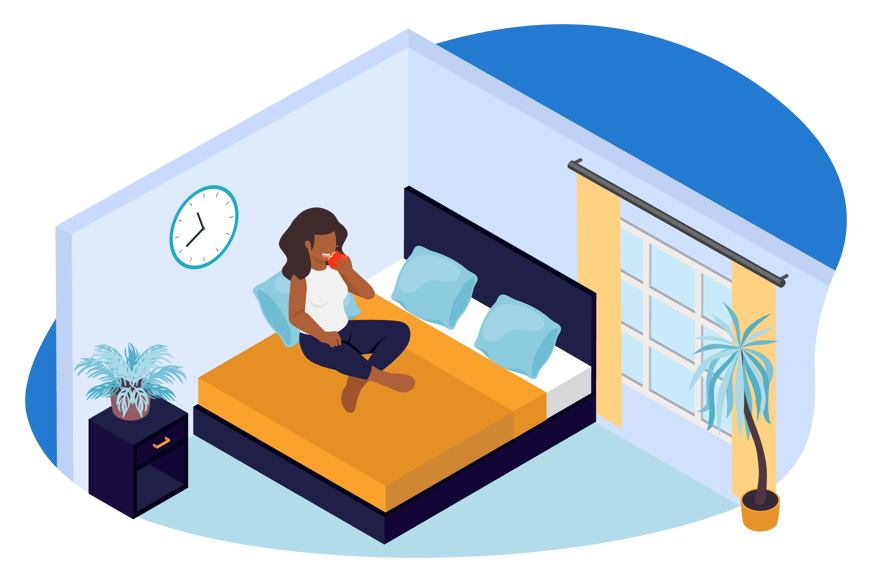
This indicates a sense of security in where we feel most comfortable sleeping.
You should avoid positioning the bed directly below a window, and instead place it in a part of the room where you feel most safe.
So, although the Earth’s magnetism is an interesting idea, more scientific research is needed here before we can make any concrete claims.
The best direction to sleep in is likely the one that makes you feel the most relaxed and secure. 🔒
Which direction is best for sleep, according to Feng Shui?
Feng Shui is the ancient Chinese art of human life and our connection to the environment.
To enhance energy flow and balance, Feng Shui practices suggest placing your head toward the south when sleeping.
Feng Shui advocates for this southward orientation partly due to the traditional association with warm, life-giving southern winds in China, which are thought to bring positive energy. ☀️
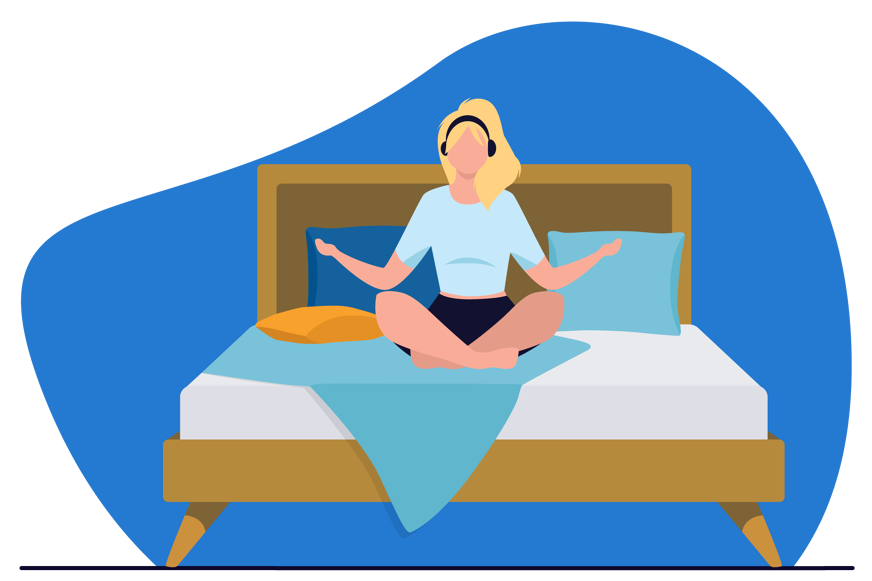
To maintain a balanced chi or life force, you should also strike a good balance between an open space, which can overwhelm chi, and an overly cluttered area, which stifles it. 😷
Feng Shui also places emphasis on the "commanding position", which suggests placing the bed against the wall so that you can see the door but are not directly facing it.
This position provides a sense of security and prevents any feeling of vulnerability from unseen threats behind you.
You should also choose relaxing colours for the walls and use ethically-made bedding that does not have questionable energy.
For example, Ethical Bedding and Panda bedding are made with highly sustainable practices and natural materials. 🍃
Our favourite Feng Shui-approved bedding:
What happens if you sleep in the wrong direction?
Some cultural beliefs suggest that sleeping with your head toward the north may disrupt sleep due to the Earth’s magnetic pull.
They argue that this can have a negative effect on blood circulation and may even increase cholesterol [4].
A study [5] found that your heart rate may also increase at night when sleeping in geopathic stress zones [6]. 🫀
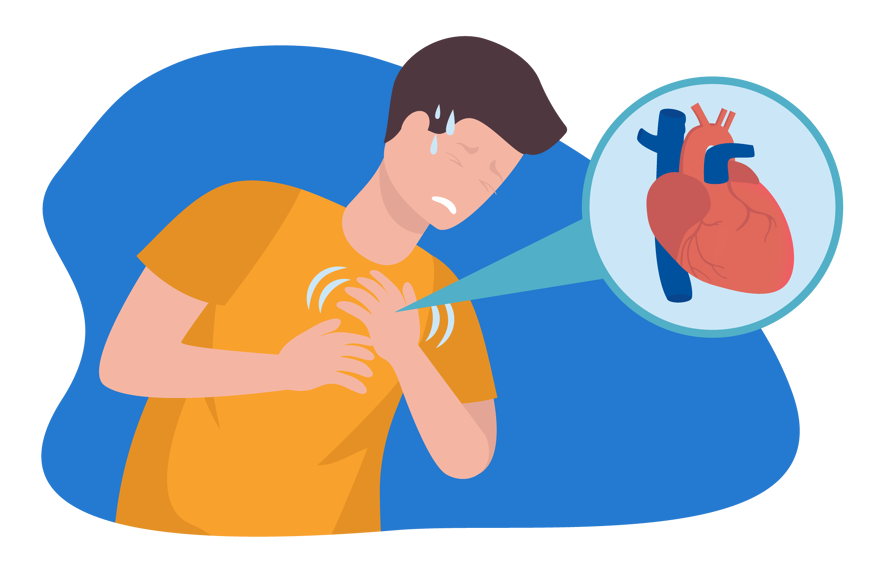
However, this relates less to the position you sleep in and more to the surroundings of your home.
But we wouldn't pack up and move just yet.
Your sense of safety and the quality of your bedroom environment are more likely to have a bigger impact on your sleep.
For example, feeling exposed by sleeping with your back to the door can feel unsafe and be disruptive to some.
We also recommend a bedroom that is cool, dark, and quiet and removing stressors like work-related items from the room.
So, does the direction you sleep in really matter?
The debate over the optimal sleep direction really depends on how much credence you give to the arts of Vastu and Feng Shui.
These spiritual practitioners commend the virtues of South sleeping for harmonising energies and enhancing life force.
Scientific studies have yet to fully endorse these claims, with some research suggesting that factors like room layout, visibility of entry points, and geopathic stress zones play a more definitive role in sleep quality.
However, more research is definitely needed, and we'd advise trying different directions for yourself to see what feels most comfortable.
We’d also advise that a calm bedroom environment, good sleep hygiene, and a consistent bedtime routine generally have a more direct impact on achieving restful sleep than the direction you face. ✅









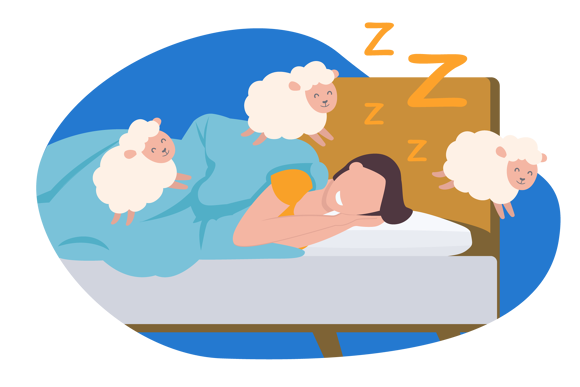
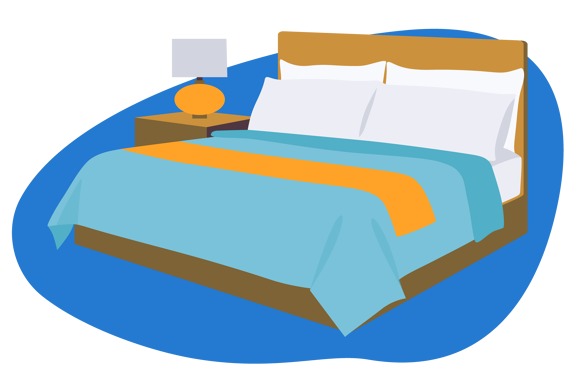
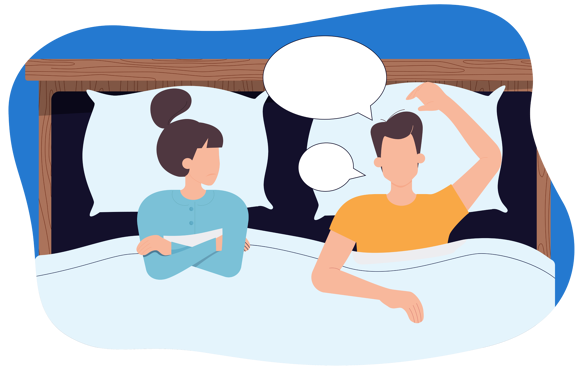


Alternatively, message us directly via the Contact Us page.